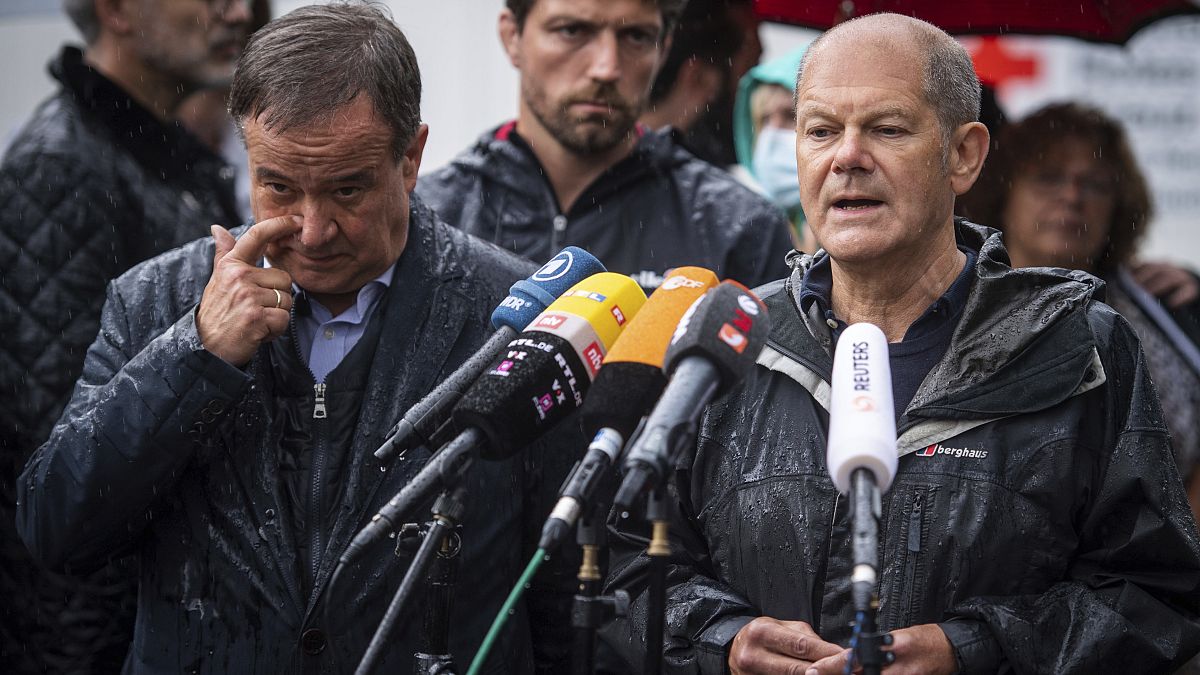Merkel's CDU-CSU bloc has been languishing in the polls, currently projected to secure around 21% of the vote— a historically low level.
Armin Laschet unleashed a salvo of attacks against frontrunner Olaf Scholz as candidates to replace Angela Merkel as Germany's leader debated for the second time.
Scholz of the centre-left Social Democrats (SPD), currently Germany's finance minister, denied his office was being directly investigated by prosecutors following searches last week at the country's finance and justice ministries.
The raids were part of a probe into a federal anti-money laundering agency. Scholz's services are suspected of not having flagged to courts suspected money laundering of several million euros.
"If my finance minister worked like you, we would have a serious problem," Laschet, of the centre-right Union bloc, told Scholz.
His second line of attack was over the possible coalition Scholz could form with the Green party but also the far-left Die Linke party.
However, Laschet's combative style failed to change the tide.
The 60-year-old, who portrays himself as the natural successor to Angela Merkel, has been languishing in the poll with the CDU-CSU bloc polling at around 21% — a historically low level.
The SPD is in the lead, polling at just under 26% with the ecologists expected to finish in third with 16.2% of votes.
Post-debate polls all gave the advantage to Scholz, described as "the most convincing" by 41%, ahead of Laschet and the Green Party's Annalena Baerbock, who garnered 27% and 25% respectively.
Much of Sunday’s debate was devoted to substantive issues, including the parties' policies on housing, health, pensions, taxation and immigration.
Laschet found himself in trouble when, pressed by the other two candidates on climate policy, he had to distance himself from Merkel, pointing out that he is "not a member of the government".
Scholz, who is seen by many as the continuity candidate despite belonging to a different party than Merkel, pitched himself as the leader who would build on the sense of solidarity seen during the coronavirus pandemic, by raising the minimum wage and guaranteeing stable pensions for decades to come - in part by reintroducing a wealth tax for the richest in Germany.
Meanwhile, Baerbock, whose party has slipped up in the polls, largely refrained from personal attacks on her rivals and focused instead on her signature issues of social justice and reduction of greenhouse gas emissions.
The third and final debate takes place September 23, three days before the election.


